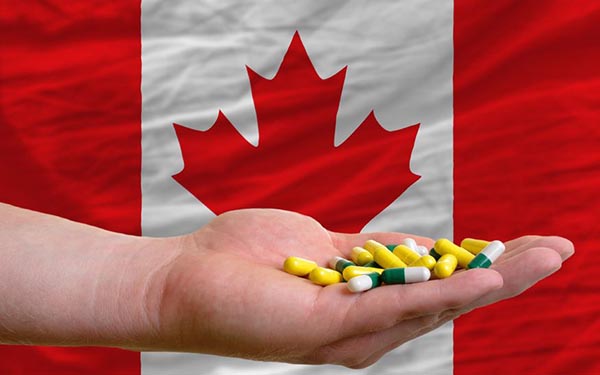
A 10ml bottle of Insulin would have cost you $450 in the United States in 2018. This is despite the fact that the same bottle could be acquired for a paltry $21 in Canada. And that is hardly the only example of the massive discrepancy between prices in the US and Canada. Consider Nexium, a drug that American pharmacies sell at $7 for one 40mg tablet but which a Canadian pharmacy will offer at $3, or Abilify which the Americans sell at $34 a pill but Canadians provide at $4. Why are identical drugs cheaper in Canada than in America? The price disparity is approaching the ridiculous, so much so that some American consumers have started looking elsewhere for cheap drugs.
American drug prices are not just higher than their counterparts in Canada. They are exponentially higher than the price of drugs in places like the United Kingdom and Australia. However, frequent comparisons are made between the United States and Canada in this arena because Canada is so much closer to the US. More to the point, people have begun looking to Canada for relief in their efforts to more effectively meet their healthcare needs. In 2014, the average American was spending over a thousand dollars a year on drugs. This was as opposed to the seven hundred dollars that the average Canadian spent on his or her pharmaceuticals.
The Most Prominent Reasons
❋ Cost
The United States sits at the heart of the world’s pharmaceutical research and development landscape, and it costs a lot of money to research and develops new drugs. You’re looking at billions of dollars spent over more than a decade. When people complain that pharmacies are putting their profit margins ahead of the welfare of their customers, they are not wrong.
Whenever a new drug hits the market, the pharmaceutical companies that created it are driven by a desire to recoup their investment before their patent expires, and they will do so by hiking prices. Of course, you have people like Peter Bach from the Memorial Sloan Kettering’s Center for Health and Policy who argues that medical firms hike prices because they can, not because of their corporate objective forces their hand. Several voices have risen to counter this Big Pharma’s message, suggesting that the cost of research and development has been grossly exaggerated. Additionally, the research and development budgets of many medical manufacturers are often ballooned by the exorbitant amounts they spend on advertisements.
❋ Negotiating Power
Low prices are only possible in any given situation when the purchaser and the seller have close to equal bargaining power. Unfortunately, in the United States, the scale is dangerously skewed against the purchaser.
If you go to a place like the United Kingdom, you will find that the National Health Service buys all the drugs that the country utilizes. So it is in a powerful position to exert influence on drug manufacturers. When the pharmaceutical industry knows that the number of parties available to buy its products is small, it will work that much harder to play fair and to appease its consumers lest they go elsewhere, and that often involves bringing the prices down to a rational, acceptable, affordable point. Things are unfortunately far more complicated in the United States. First of all, the country doesn’t have anything that resembles Britain’s National Health Service.
Consumers must rely on individual insurance firms and health centers to buy their drugs for them. The fact that all these disparate groups must negotiate their own prices with suppliers works against them. It creates a messy pricing variety that is difficult to regulate or control. You would expect entities like Medicare to balance out the equation, to hold the pharmaceutical giants to account. After all, Medicare buys more medicine than most other organizations in the United States. However, Medicare’s hands are tied. The constitution doesn’t permit it to negotiate directly with drug companies. If anyone was going to bargain with the pharmaceutical giants on an equal footing, it would be Medicare. But for the moment, that option isn’t available, which is why cheap drugs are still a distant dream.
❋ Regulations

The fact that medical manufacturers in the United States are permitted to set their own prices astounds lawmakers in most other developed countries. And yet it is the unfortunate truth. The reason drug makers keep raising the prices of medical products in America is because no one can stop them, not even the FDA. And most of these products are life-saving drugs without which so many Americans would perish. So the average consumer doesn’t even have the option of simply boycotting some of the greedier brand name drug manufacturers. The American Consumer has very little power.
❋ Competition
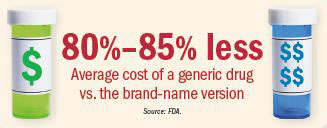 Nothing encourages price reductions more than the competition. And with the rate at which the popularity of generic drugs is growing, you would have expected brand name drug makers to respond by enticing consumers both old and new with more affordable price tags. However, that sort of humble approach would only manifest in nations where the drug makers hadn’t been allowed to accumulate so much power. In the United States, leaders in the pharmaceutical field have responded to the rise of cheap drugs by employing underhanded tactics such as abusing patent extensions and even bribing the manufacturers of generic drugs to keep their cheaper versions of life-saving medicines out of the United States. This has essentially left poor Americans stranded with little to no viable affordable healthcare options.
Nothing encourages price reductions more than the competition. And with the rate at which the popularity of generic drugs is growing, you would have expected brand name drug makers to respond by enticing consumers both old and new with more affordable price tags. However, that sort of humble approach would only manifest in nations where the drug makers hadn’t been allowed to accumulate so much power. In the United States, leaders in the pharmaceutical field have responded to the rise of cheap drugs by employing underhanded tactics such as abusing patent extensions and even bribing the manufacturers of generic drugs to keep their cheaper versions of life-saving medicines out of the United States. This has essentially left poor Americans stranded with little to no viable affordable healthcare options.
What Are the Canadians Doing Right?
Are Canadian drugs cheaper than American drugs? That is a definite yes. But it should be mentioned that the price discrepancy is only present among brand name drug comparisons. Generic drugs are actually cheaper in the United States. This is because North America has such a massive drug market. For that reason, generic drug manufacturers are compelled to fight harder to capture consumer interest. But none of that changes the fact that the prices of brand name drugs in America are several times higher than the prices of the same drugs in Canada.
Canada actually exerts direct control over the prices that its drug makers set. The country has an organization called the Patented Medicine Prices Review Board. They are independently run and it is their job to regulate the manner in which companies that hold the patents of drugs price them.
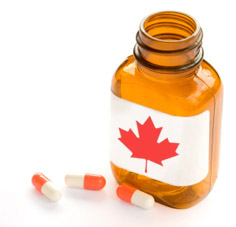
The PMPRB is specifically charged with making sure that Canadian drug prices compare favorably with those from other parts of the world. They will never allow their medical products to cost more than medicine in other nations.
So they take careful consideration of the prices of drugs in other markets whenever they review the submissions made by companies looking to sell drugs in Canada. Additionally, while drug companies in Canada can raise their prices if the need arises, the PMPRB places a cap on these increases. This is a stark contrast to drug makers in the US who can raise their prices as they see fit.
What Can the Americans Do?
The drug price problem in the United States is quite stark but there are ways to resolve it, for instance:
❶ Many politicians believe that American Health entities like Medicare should be permitted to negotiate with drug makers for better drug prices. Hilary Clinton and Bernie Sanders argued years ago that Medicare had the power and the clout to twist the arms of giant Pharmaceutical businesses, forcing them to treat their consumers more fairly.
❷ Governments in Europe exert explicit control over the prices companies set for drugs. Not only do they bar drugstores from inflating prices but they will even demand price reductions where possible. Most experts agree that the United States needs to craft regulations on a federal level that can curtail the pharmaceutical industry’s ability to set its own prices. Only then can they hope to bring drug prices under control.
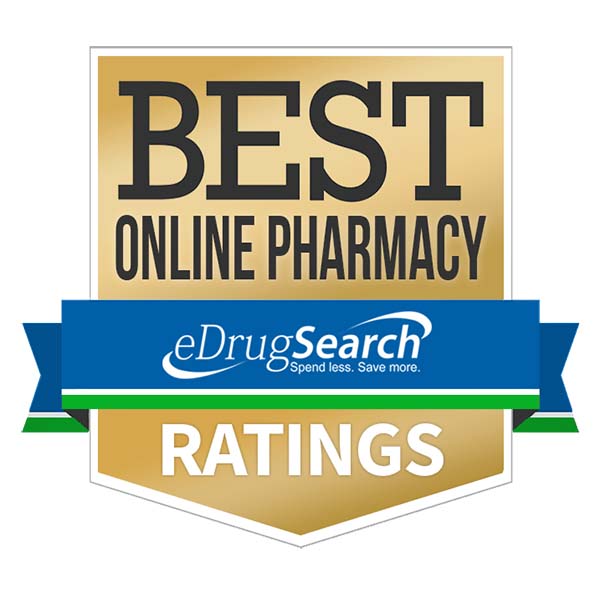
❸ One major contributor to the price hike is the collusion between health insurers and drug companies. Nothing is known of the deals that are struck between insurance plans and the companies from whom they buy drugs. That lack of transparency has allowed practices that stifle competition to thrive. Insurers have no reason to lobby for lower drug prices because they benefit immensely from the current situation. It will take an act of Congress to force insurers to disclose the deals they strike with medical firms.
❹ While branded medicines bear very hefty price tags, there are plenty of cheaper alternatives on the market today. However, even poor consumers are compelled to seek out branded drugs because of the heavy marketing campaigns from Big Pharma which have them convinced that only the most expensive of pills will suffice. While physicians will, on occasion, force expensive medical products on consumers, there are plenty of cases of consumers requesting these prescriptions on their own. This sort of rampant advertising that is directed towards consumers must be reined in.
The Online Pharmacy Route
The American pharmaceutical field is broken but there are ways to fix it. However, even the most drastic of measures will require years if not decades to effect real change. And Americans cannot wait. The most desperate among them are riddled with chronic illnesses that can only be treated by outrageously priced medication. That might explain why Canada keeps coming up in such conversations. Millions of Americans are choosing to import cheap drugs from Canada every single year.
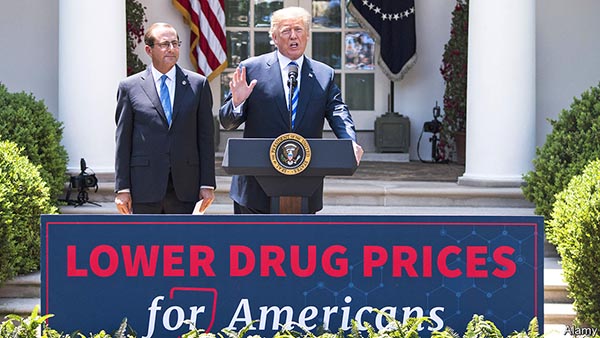
These are the same Americans that simply cannot afford to pay for medicine made and sold in the United States. An American can accrue savings of up to 65% by purchasing their medicine from Canada. Canadian pharmacies are benefiting greatly from this trend. That being said, this route is quite risky for their foreign consumers. The law forbids U.S. citizens from importing medicine, especially if it is for personal use. There are entire cities and districts that have created avenues through which their residents can acquire drugs from Canada but they are walking a very fine legal line. The FDA argues that it cannot authenticate the quality or the safety of drugs that come from beyond the country’s borders. There was a spike in the seizure of drugs ordered by Americans from international markets in 2018. The Trump Government doubled its efforts to block the importation of opioids and, in doing so, caught a number of orders belonging to Americans that were merely looking to acquire medicine cheaply.
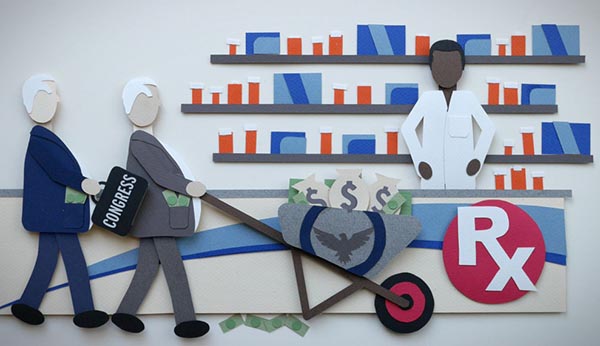 Where they were seizing a little over ten thousand medical packages in 2017, that number jumped to a hundred thousand in just a year. This prompted a storm of complaints aimed at the FDA. Patients of illnesses like asthma and diabetes fumed at the federal organization for disrupting their supply of life-saving drugs. The FDA struck back in some cases, warning some citizens that further attempts on their part to import drugs for personal use would result in prosecution. In truth, the FDA hasn’t yet been charged with stopping people from bringing drugs into the country. It has the discretion to intercept any shipment that piques its interest. But it doesn’t yet have the mandate to stop this illegal train of medication sourced from places like Canada. But this is only because drug imports are not so great yet that they can pose a real threat to the drug industry’s profit margins. The day Americans begin abandoning local pharmaceuticals en mass in favor of Canadian pills is the day Big Pharma will lobby the government to shut the trend down. Of course, the pharmaceutical industry is facing a lot of opposition from political figures like Bernie Sanders who, along with various other voices in the government, has continued to push the importation of cheap drugs from Canada as the only logical solution to America’s drug price problem.
Where they were seizing a little over ten thousand medical packages in 2017, that number jumped to a hundred thousand in just a year. This prompted a storm of complaints aimed at the FDA. Patients of illnesses like asthma and diabetes fumed at the federal organization for disrupting their supply of life-saving drugs. The FDA struck back in some cases, warning some citizens that further attempts on their part to import drugs for personal use would result in prosecution. In truth, the FDA hasn’t yet been charged with stopping people from bringing drugs into the country. It has the discretion to intercept any shipment that piques its interest. But it doesn’t yet have the mandate to stop this illegal train of medication sourced from places like Canada. But this is only because drug imports are not so great yet that they can pose a real threat to the drug industry’s profit margins. The day Americans begin abandoning local pharmaceuticals en mass in favor of Canadian pills is the day Big Pharma will lobby the government to shut the trend down. Of course, the pharmaceutical industry is facing a lot of opposition from political figures like Bernie Sanders who, along with various other voices in the government, has continued to push the importation of cheap drugs from Canada as the only logical solution to America’s drug price problem.
Conclusion
America is at a crossroads. Drug prices are at an all-time high and they are expected to continue climbing. If the US government doesn’t take steps to appease its people, they will start turning to the Canadian drug market with greater determination than ever before. The country’s best bet is to copy Canada’s system, to institute a review board that can bring the drug makers under control.
Pharmacy Ranking
We have created a rating of online pharmacies which gained our trust on the basis of their verified certificates, great customer feedback and quality services. Have a look and find the best store satisfying your needs.

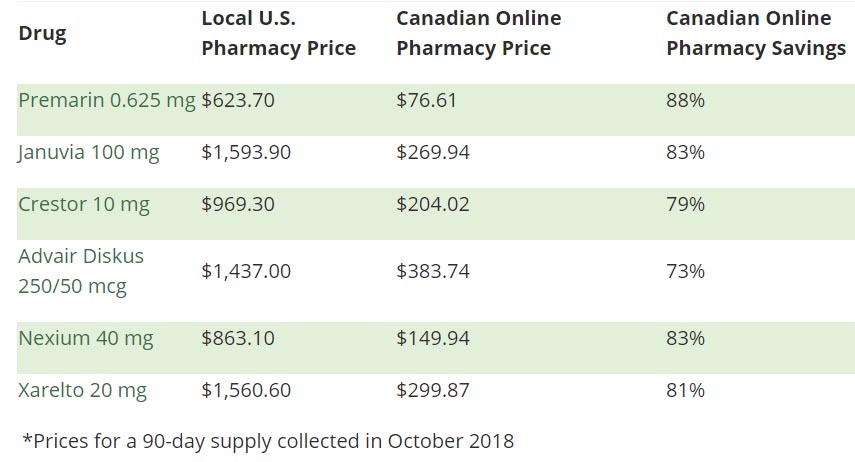
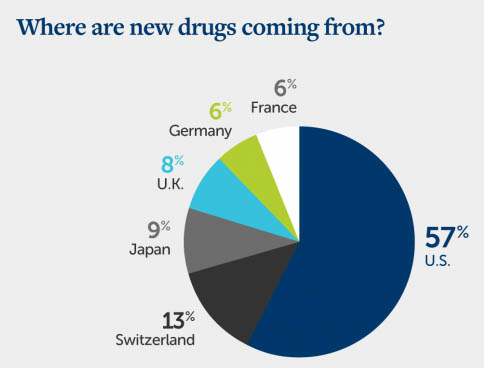
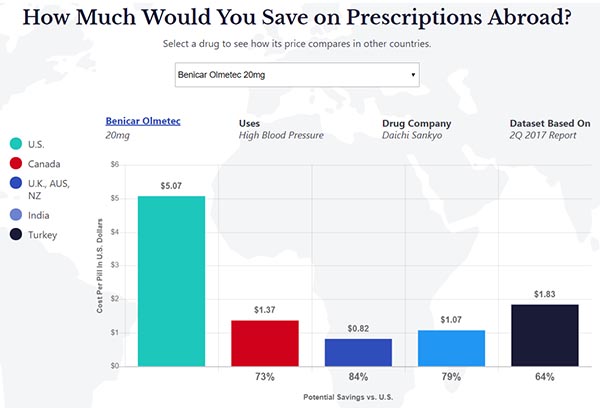
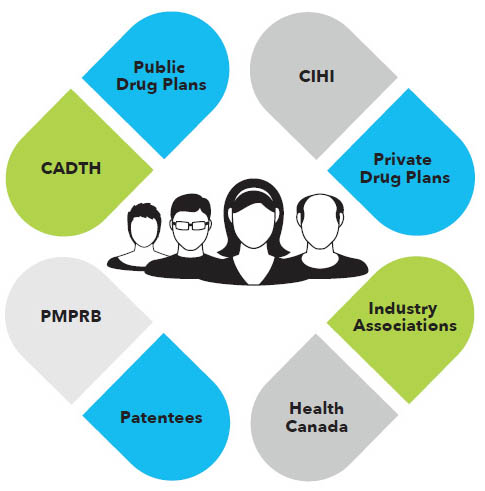
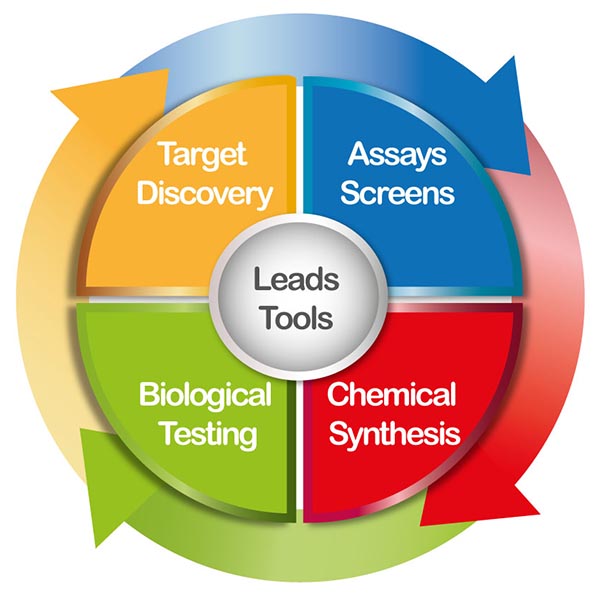
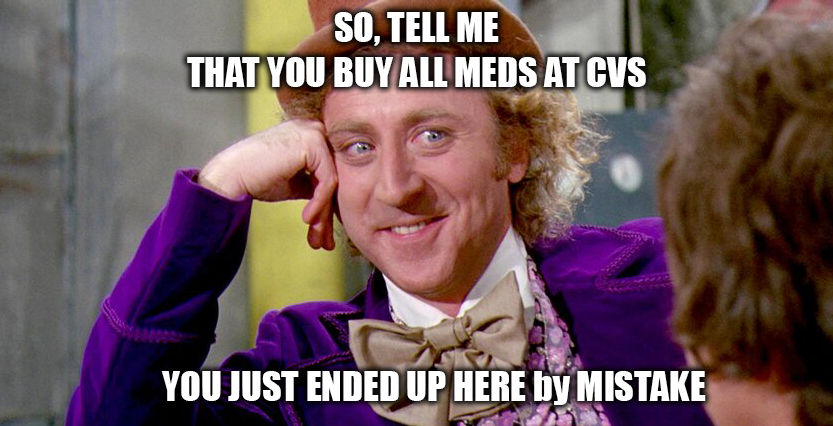
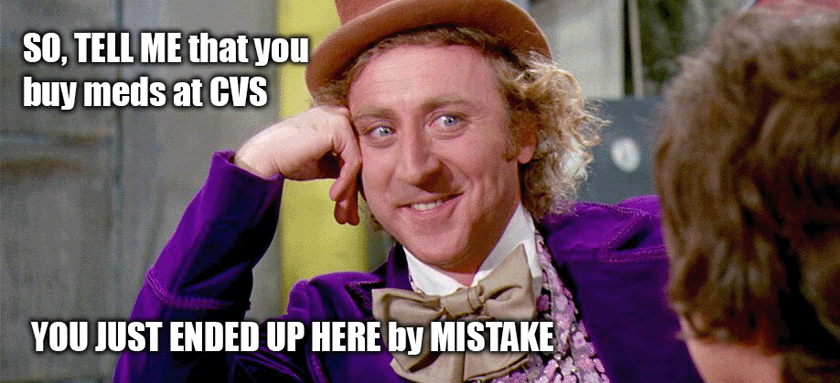


Very cool blog!! Excellent .. Wonderful ..
I’ll bookmark your website and take the feeds also.
I’m glad to seek out numerous helpful info right here in the publish, we want work out extra techniques in this regard, thanks for sharing.
We are glad you liked the article! Thanks for your comment.